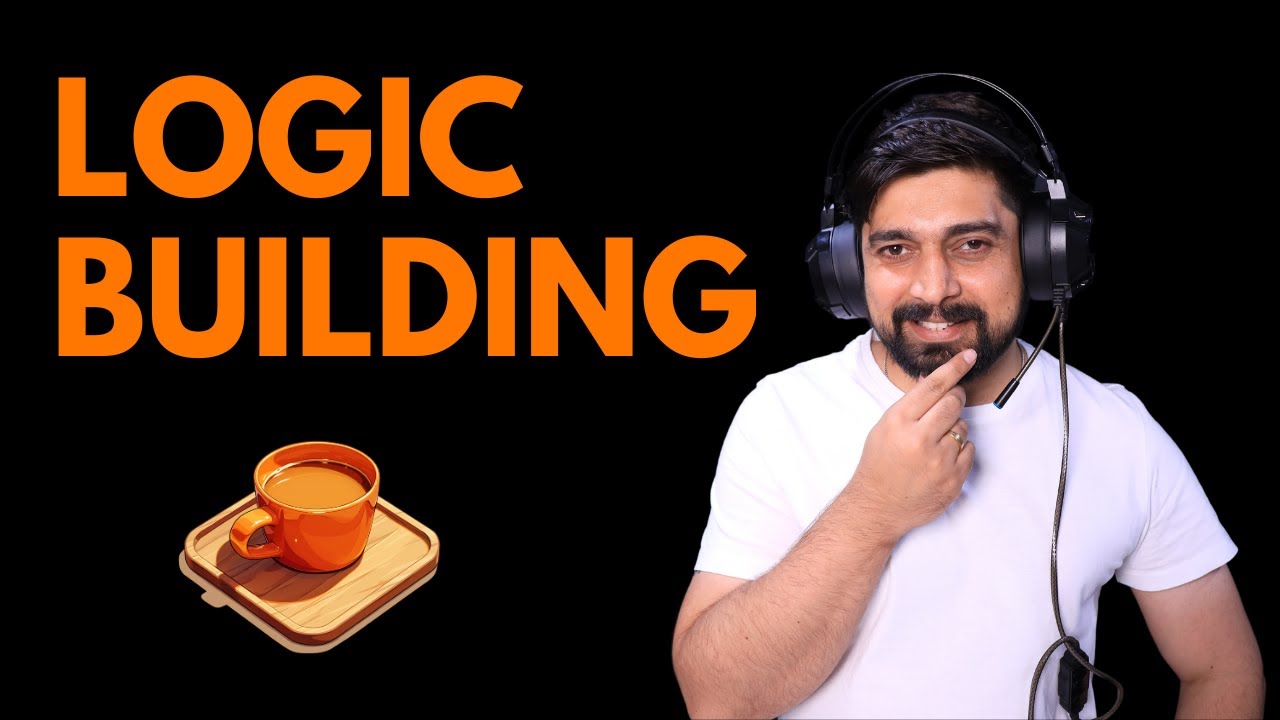How to Think like A GENIUS Programmer
Summary
TLDRThe video script emphasizes the distinction between coders and programmers, advocating for a programming mindset over mere coding skills. It introduces the 'black box' approach for modular and scalable code development, stressing the importance of collaboration, code readability, and the judicious use of existing libraries to enhance efficiency. The script also encourages learning from failures and thinking in terms of processes rather than specific languages, promoting adaptability and continuous improvement as key to becoming a proficient programmer.
Takeaways
- 🤔 A good coder is not necessarily a good programmer; coding is about writing sentences, while programming is about crafting a complete narrative.
- 🔍 The 'blackbox method' encourages focusing on the inputs and outputs of a program without initially worrying about the internal workings.
- 📝 Good programmers prioritize testing and scalability, considering how their code will be used in larger systems and how it will interact with other components.
- 🧩 Modularizing code through the blackbox approach allows for easier updates and optimizations without affecting the entire system.
- 🤝 Collaboration is key in programming; writing clean, well-documented, and understandable code is crucial for successful teamwork.
- 🔧 It's important to consider the long-term maintainability of your code, thinking about how future changes might impact the team.
- 🛠️ A good programmer knows when to leverage existing libraries and frameworks to save time and improve reliability, rather than reinventing the wheel.
- 💡 Using pre-built tools is not a shortcut but a smart practice that exposes programmers to industry standards and efficient ways of solving problems.
- 🌐 Thinking in terms of processes rather than specific programming languages allows for adaptability and the ability to learn new technologies quickly.
- 🔄 Embracing failure as a learning opportunity is essential for growth; bugs and errors provide valuable feedback for improving code and problem-solving skills.
Q & A
What is the difference between a good coder and a good programmer according to the transcript?
-A good coder is someone who can write code, while a good programmer is someone who can think at a higher level, focusing on the bigger picture, testing, and scalability of the code.
What is the blackbox method mentioned in the transcript?
-The blackbox method is an approach where programmers focus on the inputs and outputs of their code without worrying about the internal workings at first. This helps in focusing on the bigger picture and testing the code effectively.
Why is it important to create test cases with edge scenarios when programming?
-Creating test cases with edge scenarios ensures that the code works reliably under various conditions, including empty lists, lists with only one item, or lists with repeating elements.
How does thinking in terms of black boxes help in modularizing and scaling code?
-Thinking in terms of black boxes allows programmers to break down a system into independent parts that interact with each other. This makes it easier to focus on relationships and design, and also simplifies updates or optimizations without affecting the rest of the system.
Why is collaboration considered a core skill for programmers?
-Collaboration is a core skill because programmers often work in teams and need to write code that is understandable and maintainable by other team members. It also involves considering how code will fit into the existing system and interact with other components.
What does the transcript suggest about using existing code or libraries in programming?
-The transcript suggests that using existing code or libraries is a smart practice, as it allows programmers to leverage well-tested solutions and focus their time and energy on unique aspects of the project that require their expertise.
How should programmers approach learning and using new programming languages?
-Programmers should think in terms of processes rather than specific languages. They should understand underlying concepts and methodologies that are applicable across different languages and technologies.
What is the importance of failure in programming according to the transcript?
-Failure in programming is seen as an inevitable and valuable part of learning. Every bug or error is an opportunity to understand the code better and improve it, which is essential for continuous growth as a programmer.
Why is it important for programmers to make their code clean, well-documented, and easy to understand?
-Making code clean, well-documented, and easy to understand ensures that teammates can pick up the code and understand it without needing a deep dive into the original thought process. This is crucial for collaboration and maintaining the code in the long run.
What does the transcript suggest about the mindset programmers should have towards failure?
-The transcript suggests that programmers should view failure as feedback rather than a setback. They should continuously learn from their mistakes and improve their code, embracing the problem-solving nature of programming.
Outlines

This section is available to paid users only. Please upgrade to access this part.
Upgrade NowMindmap

This section is available to paid users only. Please upgrade to access this part.
Upgrade NowKeywords

This section is available to paid users only. Please upgrade to access this part.
Upgrade NowHighlights

This section is available to paid users only. Please upgrade to access this part.
Upgrade NowTranscripts

This section is available to paid users only. Please upgrade to access this part.
Upgrade Now5.0 / 5 (0 votes)





